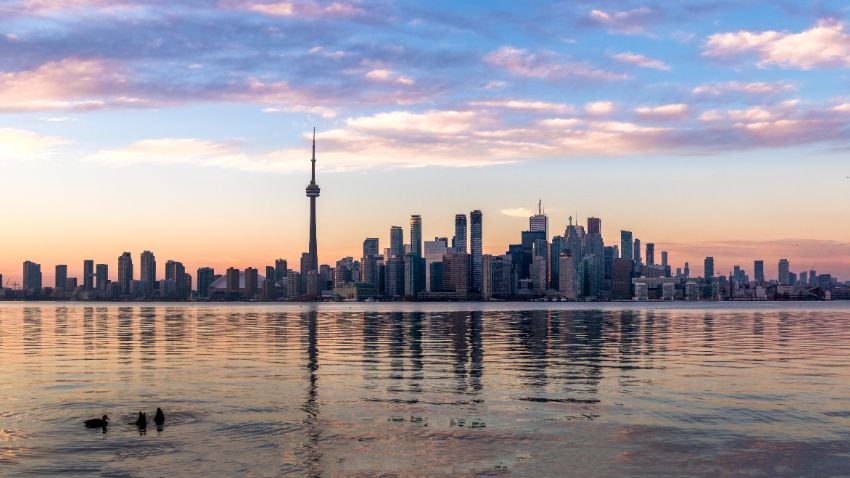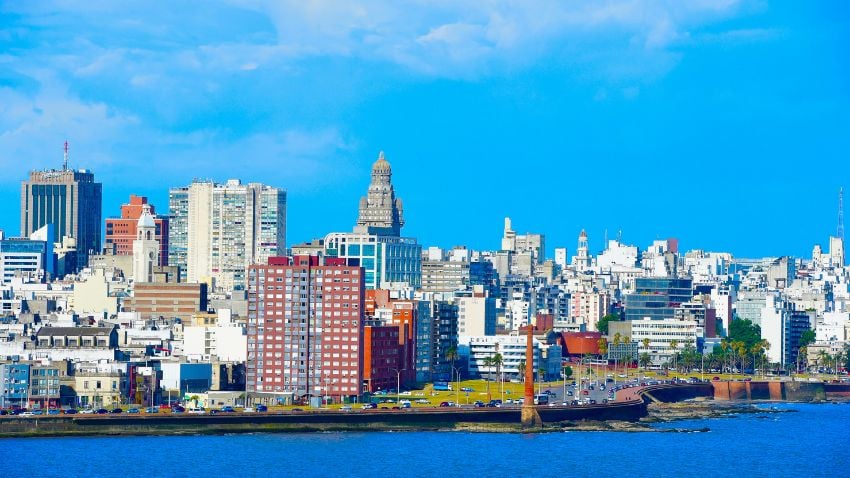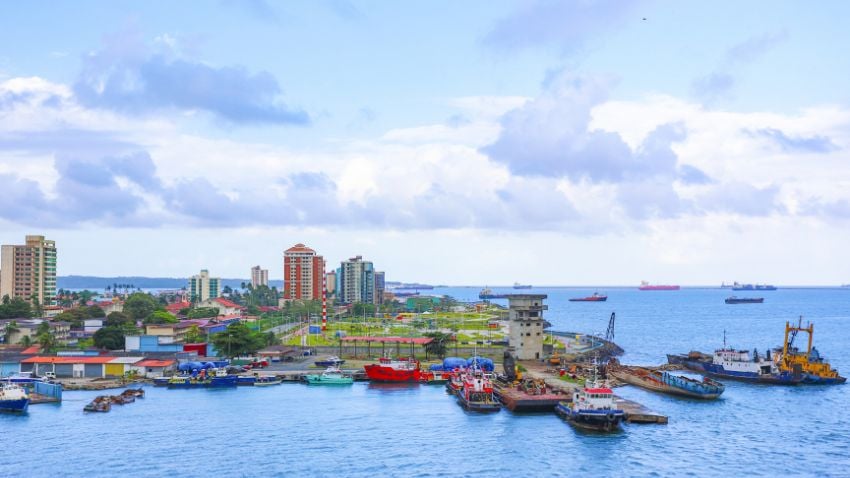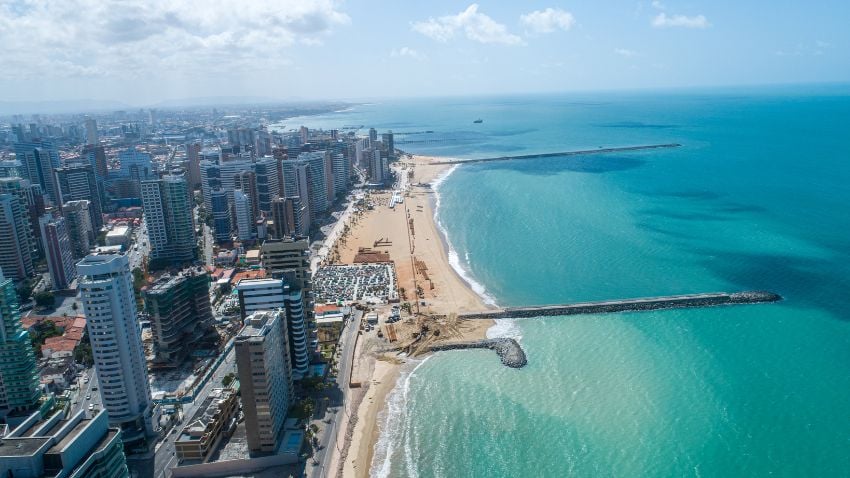Best Cities To Live In Mexico In 2026
Mexico remains one of Latin America’s most compelling destinations, especially for North Americans. More than a million expats call it home, and tens...

5 min read
Real estate is more than one of the strongest asset classes; it’s a necessity for everyone, regardless of their status or income. People always need a place to live or work.
Canadians often pay top dollar for tiny apartments; the worst part is that this is the norm. Concerns like this, along with threats of confiscation, hefty tax bills, and bureaucracy, are worth considering if you want to build and protect your wealth.
The good news is that the overseas real estate market offers many alternatives, whether you want a plan-B residency, rental income or just a more diversified portfolio. You can ditch expensive urban boxes for affordable, spacious properties in jurisdictions that potentially yield higher returns.
In this article, we’ll delve into why overseas property investment is not just a feasible option but also a strategic move for Canadians seeking more freedom.
Let’s begin.

Toronto, Canada
Could you imagine paying 650 bucks for half a bed? True or not, this viral TikTok post rightfully grabbed the attention of many users. However, I’m not into fear-mongering but rather being realistic and solution-oriented. The real estate market in Canada is broken, with millions of people having difficulty affording a roof over their heads. This trend is sadly settling in other Western countries as wages do not keep up with real estate prices.
To illustrate this better, this article explains how much a family should make yearly (around $180,000 CAD / $132,580 USD) to afford the average house (around $740,000 CAD / $545,050 USD) in Canada. Of course, price points in major cities like Toronto, Vancouver and Quebec are even higher. It’s evident that owning property in Canada is almost a luxury for most people, which is a good sign to look beyond the confines of the country. What you pay for a modest property in Canada might get you a large house in other places in the world.
As an investor, diversification is a term you’re surely familiar with. This prompts many to invest in all asset classes available, even if they’re not that profitable. While stocks, bonds, savings accounts and the like might be part of a diversified portfolio, they lack the tangibility and reliability real estate offers.
In particular, the stock market may suffer from severe fluctuations that can erode your investment in no time. Also, have you considered whether the board members of the companies you invest in have your best interest at heart? On the other hand, bonds and savings accounts typically offer menial returns compared to those of international real estate.
Knowing these limitations, many of my Canadian clients have decided to work with us and invest in the overseas real estate market. The perks this asset class presents are numerous, so if you want to explore the potential of overseas real estate investment, check the following sections.

Montevideo, Uruguay
The first thought that comes to mind when considering foreign real estate is probably language barriers, new legal frameworks and overall, a lack of knowledge. The concerns are valid; I had and still have to deal with them from time to time. The good news is that you can always do your research and find the best real estate professionals to help you figure things out.
I want to make it absolutely clear that overseas real estate investment might be daunting and out of your comfort zone, but the benefits can be immense. So, if you want to know how valuable real estate can be for you, I strongly recommend you keep reading.
Foreign real estate often yields higher returns than domestic options because of the potential for appreciation in emerging and frontier markets, where economic growth can lead to property value increases. Plus, many investors smartly invest in tourist-heavy destinations, pocketing substantial short-term rental income.
Imagine you acquire a beachfront property in a country like Brazil or Colombia, where the influx of tourists is never-ending. This strategy turns a property into a cash flow source and, of course, an asset. You can bid farewell to sporadic visits to countries like this and acquire a property that will allow you to earn substantial income, whether you’re in the country or abroad.
Investing in overseas real estate is about diversifying your portfolio and seizing opportunities that the Canadian market just can’t offer. For instance, consider the purchasing power of the Canadian Dollar in relation to other currencies like the Brazilian Real, the Mexican Peso or the Nicaraguan Cordoba.
Thanks to favourable exchange rates, your investment and money can go a long way. A better value for money is a feasible possibility when you look beyond Canada.
One often overlooked advantage of overseas real estate is the potential tax benefits. In many cases, owning property abroad can offer tax deductions under Canadian law. Moreover, investing in foreign properties may lead to residency opportunities, offering a second home and a potential path to dual citizenship. As always, consult with a tax professional before making any tax-related decisions.
Second residencies are a necessity in today’s world. Real estate investment is often a legal route toward them, and in some countries, the amount of money you need to dedicate to the investment is minimal compared to what you would need to pay in Canada just to get a roof over your head.
Beyond the financial and tax considerations, there’s a lifestyle element to foreign real estate. Why settle for a small, expensive property in a crowded city when the same investment or even less money can give you access to a luxurious space in a beautiful foreign town? What about a beachfront property or a mountain retreat? This mindset shift is a first step not only toward diversification and financial gain but also an enhanced quality of life.

Colon, Panama, Atlantic Entrance to Panama Canal
Now that you understand how powerful foreign real estate can be, let me clarify that it’s not a stroll in the park. Investing always implies a certain level of risk, so make sure you’re comfortable with what you’re doing and where you’re investing in. That said, it’s time for some recommendations that will make your offshore investment process much easier.
Successful overseas real estate investment begins with extensive planning and a deep understanding of the country’s laws. Also, consider the structure of your investment. Do you plan to hold the property under your name or a previously established entity like a trust, foundation or corporation? Which of those options works best for you? What documents do you need to hand in?
Asking yourself these questions and considering all the factors involved is key for legal compliance and tax optimization. Therefore, do your due diligence and surround yourself with trustworthy professionals in the legal and tax fields.
Currency fluctuations can impact the value of your foreign investment. Tracking exchange rates and understanding the economic climate of the country you invest in is paramount. Plus, just like you need to surround yourself with seasoned legal professionals, you need to ensure the credibility of real estate agents, developers and even the price of the property itself.
Does the property price sound too good to be true? What about nearby properties? What’s the area’s price point? Are they all priced similarly? Taking these factors into account will help you check whether you’re making the right move.
Related content: How Do Canadians Legalize Documents For Immigration?

Fortaleza, Ceará, Brasil
Although exciting, the world of foreign real estate can be daunting. Perhaps you wondered whether this was the right move for you or whether you could truly find a home or profitable investment in a foreign land. That’s why, in this article, we’ve gone through the tangible benefits, from exploring favourable exchange rates to enjoying a lifestyle upgrade to the potential for residency.
Remember that investing in overseas property is not only about financial gain but also about expanding your horizons and improving your life. If you’re considering taking this bold yet rewarding step, contact us, and we’ll see how to turn these opportunities into a reality.
If you want the best intel from the expat world, including profitable offshore opportunities, little-known tax-saving strategies, and hard-won insights on immigration, passports, and Plan-B residencies, all delivered to your inbox every single week, then join our daily correspondence, EMS Pulse®. Currently enjoyed by over 84,000 expats and expat-hopefuls worldwide. Fill in the form below to join our newsletter free:

Written by Mikkel Thorup
Mikkel Thorup is the world’s most sought-after expat consultant. He focuses on helping high-net-worth private clients to legally mitigate tax liabilities, obtain a second residency and citizenship, and assemble a portfolio of foreign investments including international real estate, timber plantations, agricultural land and other hard-money tangible assets. Mikkel is the Founder and CEO at Expat Money®, a private consulting firm started in 2017. He hosts the popular weekly podcast, the Expat Money Show, and wrote the definitive #1-Best Selling book Expat Secrets - How To Pay Zero Taxes, Live Overseas And Make Giant Piles Of Money, and his second book: Expats Guide On Moving To Mexico.

Mexico remains one of Latin America’s most compelling destinations, especially for North Americans. More than a million expats call it home, and tens...

South Korea is far more than K-pop and K-dramas. It is a country known for outstanding food, from bustling street markets to high-end dining, as well...

Asia is one of the most fascinating regions in the world for travel, offering an extraordinary mix of cultures, histories, and landscapes. From...